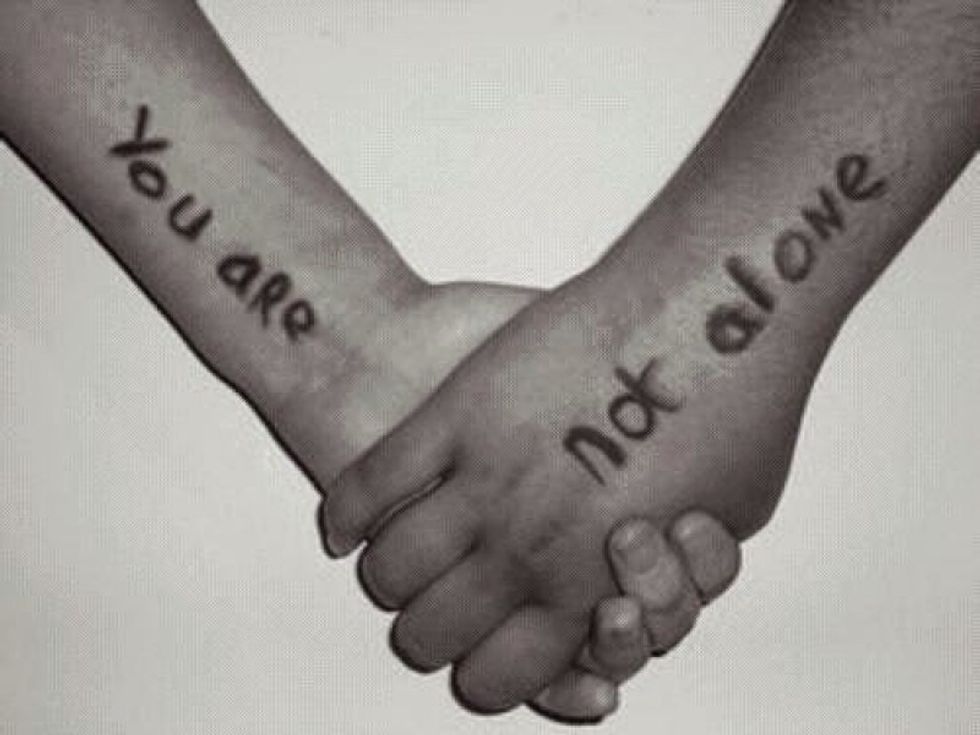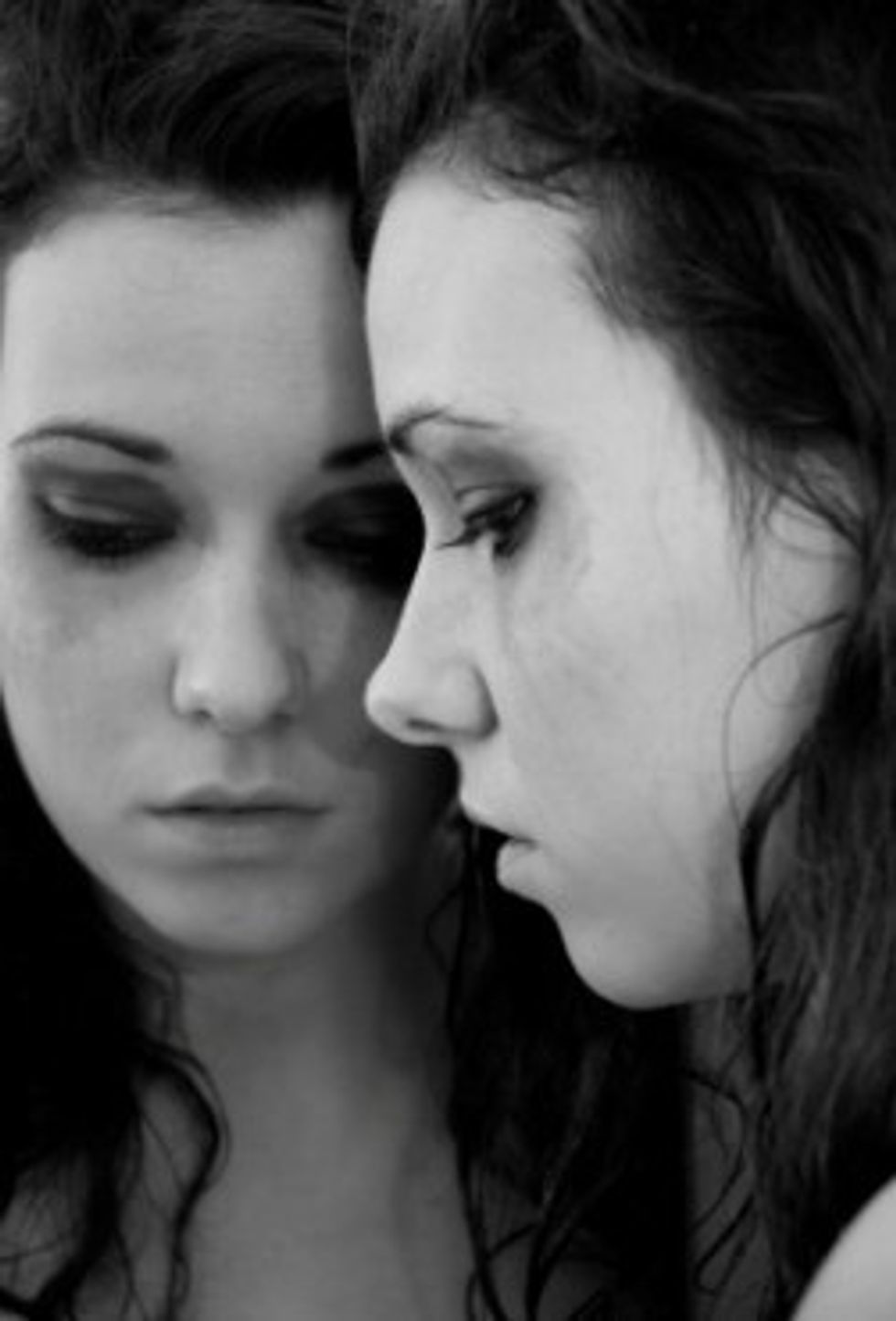Anorexia. Anxiety. Depression. Bipolar Disorder. Bulimia. Schizophrenia. OCD. Binge Eating Disorder. ADHD. In today's modern world, we are familiar with and probably even know people living with these mental disorders. They are common, they are treatable, and most importantly, they are not the defining part of a person's personality.
Imagine someone with a broken leg; you would not think of this person simply as "the guy with the broken leg" or treat them significantly differently because of their leg. Would you discriminate against someone because they wore glasses? No, that's ridiculous. This same principal should be applied to people with mental illnesses because this illness came through no fault of their own, just as a person cannot be held responsible for their nearsightedness.
Recommended for you
However, we all know that this is not the way it is. If people learn that someone has depression, they may as well follow Hester Prynne's example and stitch a big, fat "D" onto their shirts. For some reason, our society places a stigma on mental illness and it can make it even more challenging for the person to cope. They can feel as though they are swallowed up by their disorder because it is practically tattooed across their foreheads. Though they should not, people treat others with a mental disorder differently, making them feel inferior or just plain weird. It teaches them to be ashamed of their disorders, and crushes their self-worth.
As someone who has had my fair share of struggles with both self confidence and mental illness, I know what it is like to hide my pain behind a smile. Yet I have also learned the most important lesson there is on how to keep my mental disorder from ruling my life: It is not my fault, and my disorder does not define me.
In my senior year of high school, I struggled with Anorexia Nervosa, which is a mental disorder that causes me to think my body is much larger than it actually is. It began innocently enough, with the decision to begin a diet. Soon, I had lost five pounds, and then ten. I became addicted to the rush of losing weight, and before long, I had become nothing more than waxy skin stretched over frail bones. My face was gaunt, my eyes tired, and my stomach constantly empty. After I graduated, my mother and father decided to get me some more intensive therapy to help me recover. I was livid at first, refusing to believe that I had a problem, and angry that my parents would even dare to try and take away the one thing I was proud of: my body.
In the end, I received help and began to gain weight again. The most important thing that I learned from my time in therapy was I am separate from my disorder. This may sound crazy, but it helped me to think of my eating disorder as a whole separate person. The first step on any recovery is identifying the problem, and in my case, I gave my problem an actual identity. It is essential to know who you are battling against, and to realize that it not yourself. I decided to name the ED voice "Jafar" after the villain in "Aladdin"because Jafar was an ugly man who was a bad influence on the sultan and eventually rose to power, threatening the whole kingdom. However, when Jafar least expected it, he was sucked into a genie lamp and tossed into the middle of the desert, not gone, but totally irrelevant. This is what I hoped would become true with my ED, and, for the most part, it has.
I will never be rid of my depression, anxiety, or ED, but they are not a part of my personality either. They are their own separate entity — Jafar — that I have trapped in some remote corner of my brain. Sure, he rears his ugly head once and a while (ever seen Alladdin II: The Return of Jafar?), but for the most part I am able to go about my life and not let him drag me down.
I used to think I was a little crazy for referring to my disorders as "Jafar" until I met someone else who does the same thing. A friend of mine told me that she struggles with anxiety, and referring to her anxiety as another name helps her to feel better about herself. For her, having "Theo" allows her to remind herself that she is not a crazy anxious mess, that it is just Theo trying to influence her. It is sort of like having an evil twin. Giving your disorder an alter-ego allows you to take any blame off of yourself, which is the most important thing in coping with a disorder.
If I were to blame myself for my depression, calling myself a mopey drama queen, I would never be able to carry out my day to day functions. I still see myself as an average 20-year-old, I just happen to have Jafar, my overactive conscious who likes to try to rule my life. Ever since I officially separated myself from Jafar, I have felt less self pity and more determination. Disorders are nothing more than bullies, and they do not need to change who you are. If anything, Jafar has made me stronger because I have gotten very good and telling him to get lost. I am able to see myself for the true person I am because I am not my disorders. I am a crazy dancer, a great cook, and an expert on all things Spongebob, and I would not be able to express any of those things without ridding myself of Jafar's iron grip.
Now, you do not have to run and name your anxiety after a Disney character like me, but I promise you, if you think of yourself as independent from your disorder, it will make you feel better and you will be more successful in your battle to overcome it.






















